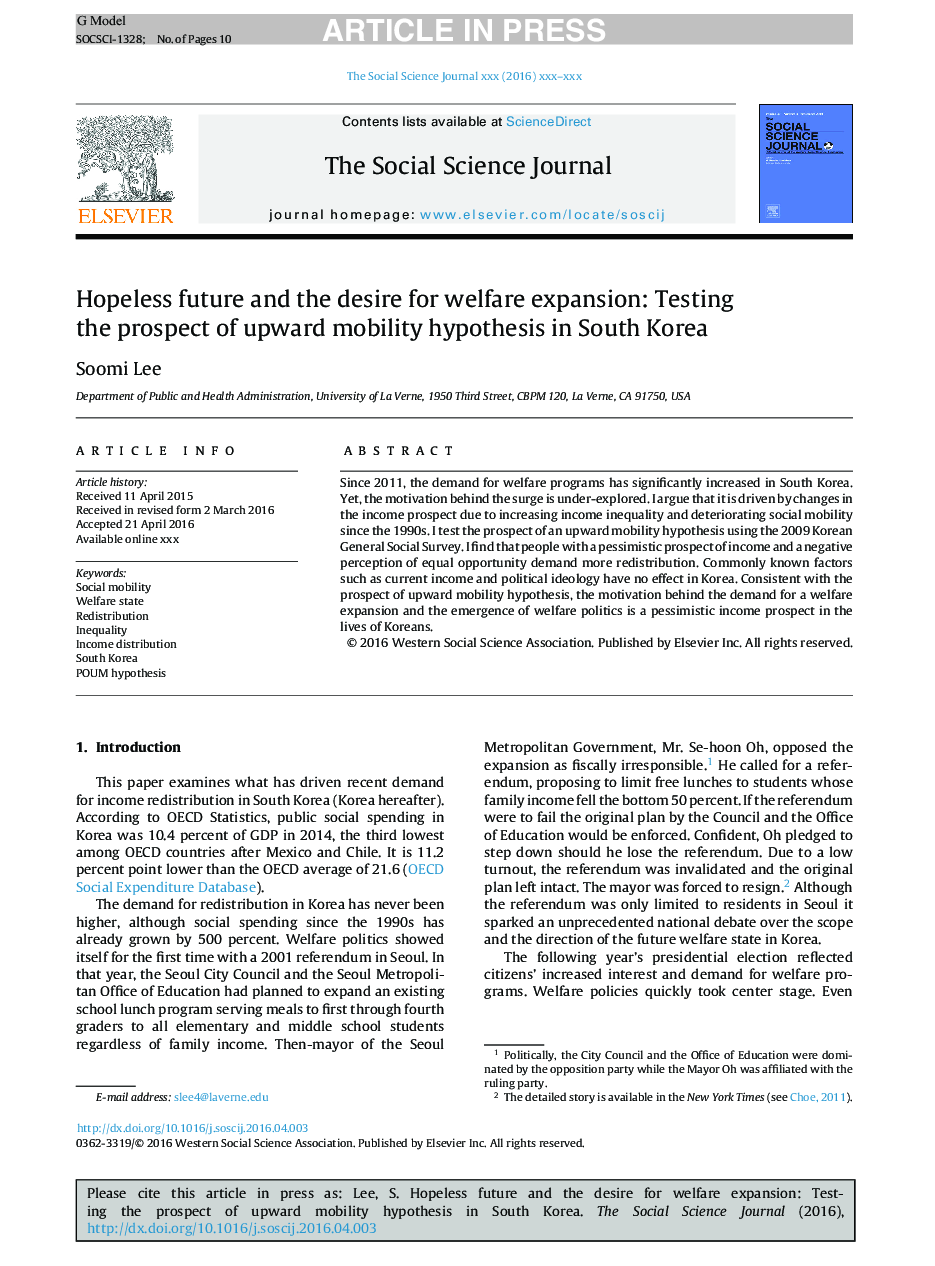| Article ID | Journal | Published Year | Pages | File Type |
|---|---|---|---|---|
| 4761926 | The Social Science Journal | 2016 | 10 Pages |
Abstract
Since 2011, the demand for welfare programs has significantly increased in South Korea. Yet, the motivation behind the surge is under-explored. I argue that it is driven by changes in the income prospect due to increasing income inequality and deteriorating social mobility since the 1990s. I test the prospect of an upward mobility hypothesis using the 2009 Korean General Social Survey. I find that people with a pessimistic prospect of income and a negative perception of equal opportunity demand more redistribution. Commonly known factors such as current income and political ideology have no effect in Korea. Consistent with the prospect of upward mobility hypothesis, the motivation behind the demand for a welfare expansion and the emergence of welfare politics is a pessimistic income prospect in the lives of Koreans.
Related Topics
Social Sciences and Humanities
Psychology
Social Psychology
Authors
Soomi Lee,
